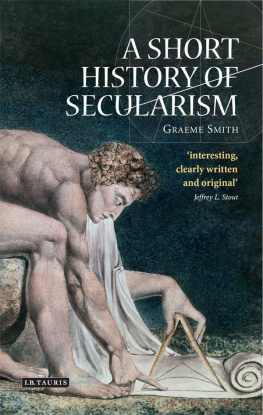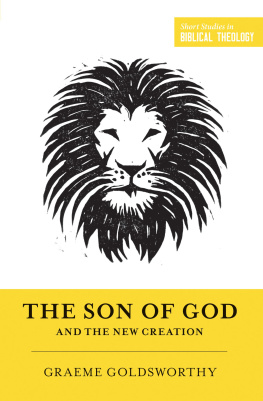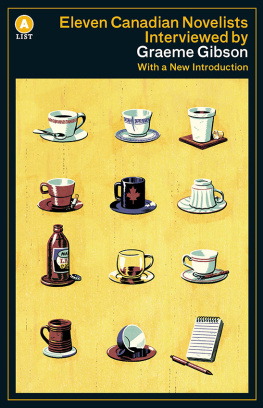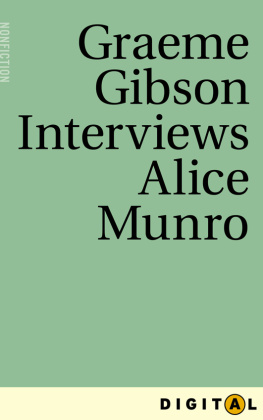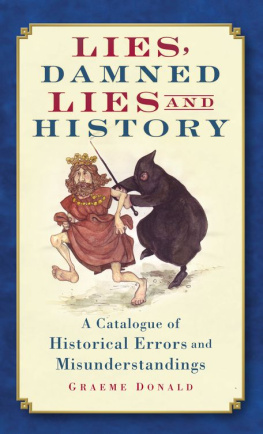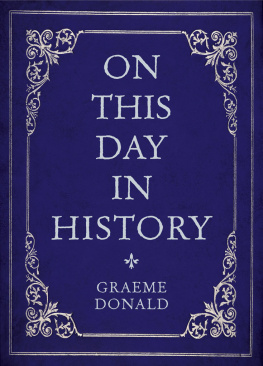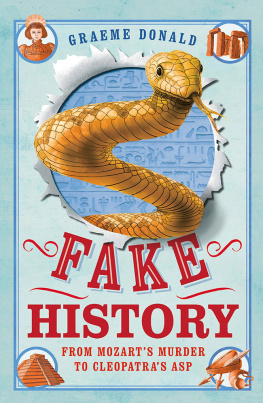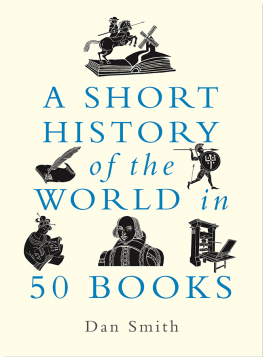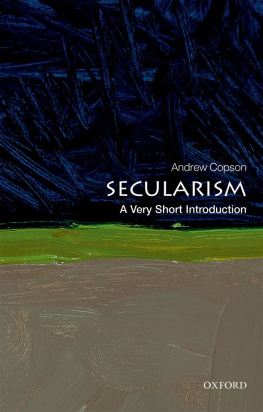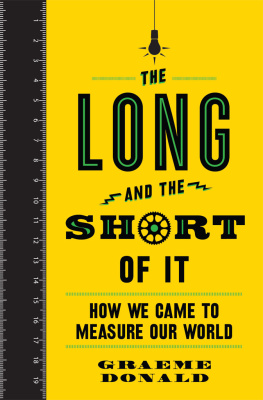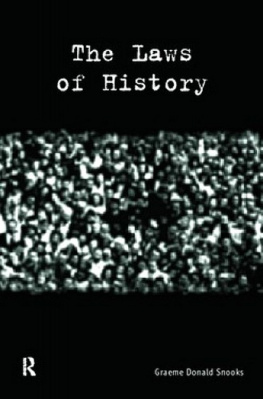Graeme Smith - A Short History of Secularism
Here you can read online Graeme Smith - A Short History of Secularism full text of the book (entire story) in english for free. Download pdf and epub, get meaning, cover and reviews about this ebook. year: 2007, publisher: Bloomsbury Publishing, genre: Religion. Description of the work, (preface) as well as reviews are available. Best literature library LitArk.com created for fans of good reading and offers a wide selection of genres:
Romance novel
Science fiction
Adventure
Detective
Science
History
Home and family
Prose
Art
Politics
Computer
Non-fiction
Religion
Business
Children
Humor
Choose a favorite category and find really read worthwhile books. Enjoy immersion in the world of imagination, feel the emotions of the characters or learn something new for yourself, make an fascinating discovery.
- Book:A Short History of Secularism
- Author:
- Publisher:Bloomsbury Publishing
- Genre:
- Year:2007
- Rating:5 / 5
- Favourites:Add to favourites
- Your mark:
- 100
- 1
- 2
- 3
- 4
- 5
A Short History of Secularism: summary, description and annotation
We offer to read an annotation, description, summary or preface (depends on what the author of the book "A Short History of Secularism" wrote himself). If you haven't found the necessary information about the book — write in the comments, we will try to find it.
A Short History of Secularism — read online for free the complete book (whole text) full work
Below is the text of the book, divided by pages. System saving the place of the last page read, allows you to conveniently read the book "A Short History of Secularism" online for free, without having to search again every time where you left off. Put a bookmark, and you can go to the page where you finished reading at any time.
Font size:
Interval:
Bookmark:
A Short History of Secularism
It is widely recognised that organised religion has much less political power and imaginative weight in Britain today than it held a century or so ago and that in that sense we live in a much more secular society. Few of us have much idea how to reconcile that recognition with the fact that most Britons still stalwartly identify themselves as believing Christians, even if they seldom or never go to church. Graeme Smiths thoughtful book is a bold and intriguing attempt to explain why each is true and interpret how we have reached this outcome and what it means for the continuing presence of Christianity in the lives of even the robustly incredulous.
John Dunn, Professor of Political Theory, University of Cambridge
Graeme Smith presents a fresh perspective on an increasingly topical question: what is secularism? Smith argues that secular thought is heavily dependent on Christian assumptions so much so that liberal morality, for example, is hard to understand except as a Christian inheritance. Even those who reject his strong claim that modern western ethics is bound to be Christian as I do myself can learn much from the alternative view of secularisation which Smith develops.
John Gray, Professor of European Thought, London School of Economics
In A Short History of Secularism, Graeme Smith has given us a lucid and strikingly original account of secularisation. The book confounds both secularisation theorists who announce the disappearance of Christianity and Christians who claim a religious identity untouched by historical change. By contrast, Dr Smiths own interpretation makes sense of the broad sweep of Western history and the shared moral convictions of modern liberal democracies. It offers a departure from the cautious revisions of Weber and Durkheim that have dominated the literature. This bold and provocative book deserves to be widely read; and, if widely read, it will certainly be widely discussed.
Robin W. Lovin, Cary Maguire University Professor of Ethics, Southern Methodist University
Graeme Smiths book offers fascinating insights into Western secularism. His engagement with key theorists and theories gives the reader a clear and accessible map of secularism as this has been understood in Western thinking. On his map he helpfully charts the chief patterns of religious engagement and disengagement within Western society. There are important chapters here on Christian identity, popular religion in the medieval period, Victorian Christianity and contemporary religious belief. Smith writes well and lucidly about current debates in sociology of religion regarding the secularization thesis. He also discusses topics that are of great interest to modern political theorists. A Short History of Secularism will be mandatory reading for both undergraduate and postgraduate students in religion and politics who seek an understanding of the concept and theories of secularism in the West.
Angie Pears, Senior Lecturer in Religion, Theology and Culture, Oxford Brookes University
Graeme Smiths book is an interesting, clearly written, and original reappraisal of received opinion on secularity and secularization in the modern West.
Jeffrey L. Stout, Professor of Religion, Princeton University

Published in 2008 by I.B.Tauris & Co Ltd
6 Salem Road, London W2 4BU
175 Fifth Avenue, New York NY 10010
www.ibtauris.com
In the United States of America and Canada distributed by Palgrave Macmillan, a division of St. Martins Press, 175 Fifth Avenue, New York NY 10010
Copyright 2008 Graeme Smith
The right of Graeme Smith to be identified as the author of this work has been asserted by him in accordance with the Copyright, Designs and Patent Act 1988.
All rights reserved. Except for brief quotations in a review, this book, or any part thereof, may not be reproduced, stored in or introduced into a retrieval system, or transmitted, in any form or by any means, electronic, mechanical, photocopying, recording or otherwise, without the prior written permission of the publisher.
ISBN: (PB) 978 1 84511 577 7
ISBN: (HB) 978 1 84511 576 0
eISBN: 978 0 85773 137 1
A full CIP record for this book is available from the British Library
A full CIP record is available from the Library of Congress
Library of Congress Catalog Card Number: available
Designed and Typeset by 4word Ltd, Bristol, UK
For
Susannah
Contents
Acknowledgements
The bulk of this book was researched and written during a study leave granted by St Michaels College, Cardiff. I am very grateful to the Principal, Revd Dr Peter Sedgwick, for allowing me time to undertake the work.
I am fortunate to work in an environment which encourages exciting thoughts and new ideas. The staff and students of St Michaels College are great dialogue partners and I am constantly thankful for the chance to share their discussions. Peter Sedgwick, Stephen Roberts and Stephen Adams are excellent colleagues who have done much to develop my ideas. It is impossible to name all the students who should be thanked, but I hope they know they have taught me so much.
For the duration of the study leave, Luke Curran and Tina Franklin undertook the work which should have been mine. I very much appreciate their willingness to cover for me and I know I am lucky to have such wonderful colleagues. I am very grateful to them both for all that they do.
A number of people have read all or parts of the book. I must thank Manon Parry and Gordon Smith. Their comments were very helpful and guided me at each stage. Dr Angie Pears read the whole draft and offered insightful and supportive comments during the most important periods of the work. She is a very valuable and important friend who has done much to shape my thinking. I owe her an enormous debt of gratitude.
In Alex Wright I could not have wished for a better editor. He has been the inspiration and driving force behind the project. His analysis and comments have developed the work into its current form. It would have been a far worse book were it not for his efforts.
Of course, none of the above should be thought to agree with everything I say. The final conclusions and arguments are my own.
My partner Susannah has borne the brunt of caring for our family whilst I have worked on this book. She does this with her usual grace and intelligence. She has also read through sections and offered valuable critical comment from someone outside the theological academy. For this and for so much else I am exceptionally fortunate. It is with all my love that the book is dedicated to her.
Chapter One
Western Secularism
What does it mean to describe the West as secular? Does it mean that we are in the last days of Christianity? Is the Church facing inevitable and terminal decline? Has science and reason triumphed over superstition and myth in the culture of civilized peoples? Has the West progressed so far in its intellectual journey that it no longer needs the props and comforts of religion? Or is religion a strong and persistent facet of Western society? Is the twenty-first century, starting with that awful date 11 September 2001, to be the religious century? What are we to make of the fact that a majority in the West believe in God and tend to describe themselves as religious? It is after all a fact that, in a society which frequently describes itself as secular, a majority of people believe in God and call themselves Christian. The UK, which is often thought of as one of the more secular countries in Western Europe, illustrates the point. In its 2001 government-conducted census, 72 per cent of the population described themselves as Christian. In some regions, such as the North East and North West of England, this rose to an astonishing 80 per cent and 78 per cent, respectively. By contrast, 15.5 per cent stated they had no religion. Regardless of whichever of the many interpretations is preferred, the difficulty remains. When we seek to describe contemporary secular Western society, then we need to take account of a persistent religious belief.
Next pageFont size:
Interval:
Bookmark:
Similar books «A Short History of Secularism»
Look at similar books to A Short History of Secularism. We have selected literature similar in name and meaning in the hope of providing readers with more options to find new, interesting, not yet read works.
Discussion, reviews of the book A Short History of Secularism and just readers' own opinions. Leave your comments, write what you think about the work, its meaning or the main characters. Specify what exactly you liked and what you didn't like, and why you think so.

